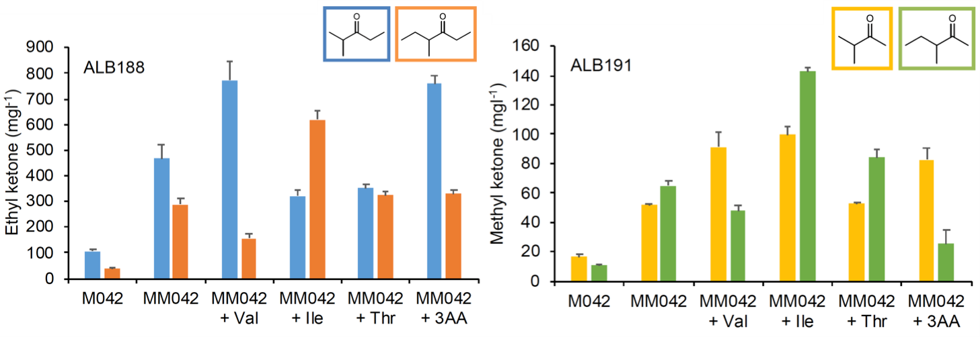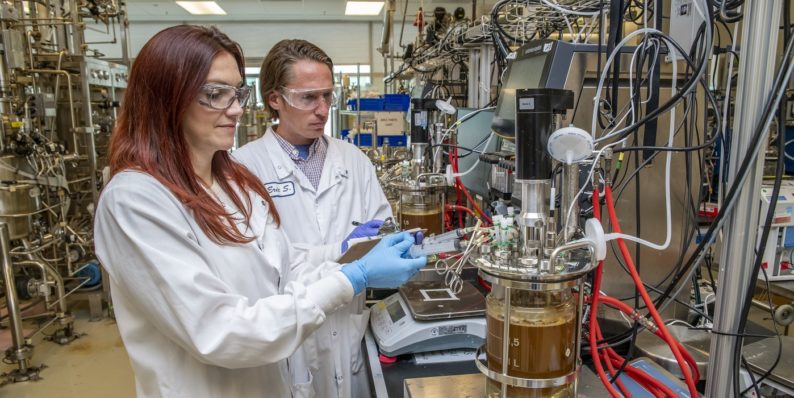-By Irina Silva
Researchers at Berkeley Lab’s Joint BioEnergy Institute (JBEI) and the Advanced Biofuels & Bioproducts Process Development Unit (ABPDU) have developed a new polyketide synthase-based platform and prototyped efficient production of potential biofuels, gasoline additives, and commodity chemicals.
Microbial production of biofuels and bioproducts is typically carried out using natural or slightly modified enzymes within the metabolic pathway, which can inherently limit the types of molecules that can be produced. Type I modular polyketide synthases (PKSs) are multi-domain enzymes that resemble a modular metabolic assembly line that naturally produces a wide range of unique and diverse molecular structures by combining particular types of catalytic domains in a Lego®-like fashion. This versatile biocatalytic mechanism intrinsically offers a wealth of bioengineering opportunities that scientists can exploit to improve both the rate and yield of the biofuels and bioproducts generated by PKSs.
In “Short-chain ketone production by engineered polyketide synthases in Streptomyces albus” published recently in Nature Communications, co-authors Satoshi Yuzawa (JBEI) and Mona Mirsiaghi (ABPDU), present the results of an engineered modular PKS system in the native host Streptomyces venezualae. JBEI and ABPDU researchers were able to demonstrate production of over 1 g/L of C6 and C7 ketones from plant biomass-, a 200-fold improvement over previous efforts.

Engine tests, performed in the scope of the Co-Optimization of Fuels & Engines (Co-Optima) project, indicate these short-chain ketones can be added to gasoline to increase its octane. This flexible platform could enable biosynthesis of an array of previously inaccessible molecules, allowing fine-tuning of fuel properties, production of highly branched diesel-range biofuels, and a broad range of commodity chemicals.
Other co-authors on the paper are: Renee Jocic, Tatsuya Fujii, Veronica T. Benites, Edward E. K. Baidoo, Anthe George, John M. Gladden, Blake A. Simmons, Leonard Katz and Jay D. Keasling of JBEI, Fabrice Masson, Eric Sundstrom, Deepti Tanjore, and Todd R. Pray of the ABPDU, and Ryan W. Davis of Sandia National Laboratories.
This work was funded by the Joint BioEnergy Institute, a DOE Bioenergy Research Center funded by DOE’s Office of Science, and the Co-Optimization of Fuels & Engines (Co-Optima) project sponsored by the U.S. DOE Office of Energy Efficiency and Renewable Energy’s Bioenergy Technologies Office (BETO). This work was also funded by the National Science Foundation, and leveraged the ABPDU facility which is maintained by BETO and was initiated with funding from the American Recovery and Reinvestment Act.
